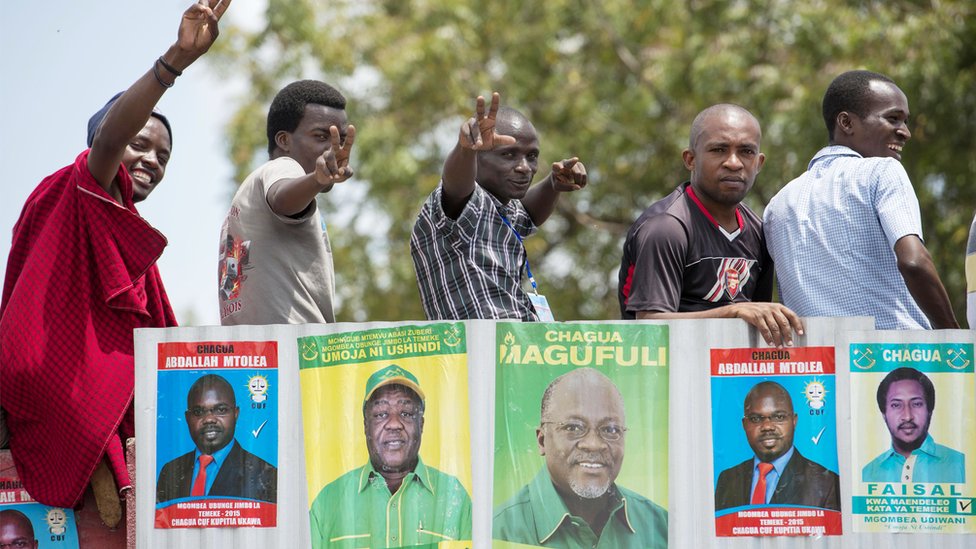In the political landscape in Tanzania, leadership term limits and the succession of younger generations are critical topics tied to leadership ethics, accountability, and the sustainable development of political institutions.
These issues remain a challenge for many political parties in the country, where long-serving leaders such as John Cheyo (UDP), Ibrahim Lipumba (CUF), Augustine Mrema (TLP, now deceased), and Freeman Mbowe (CHADEMA) have dominated their parties for extended periods, with no clear limits on their tenures.
This reality contradicts the principles of democratic leadership and hinders political progress.
The Importance of Leadership Term Limits
Leadership term limits are essential for strengthening democracy within political parties. They create room for fresh ideas, enhance accountability, and prevent leaders from monopolising their parties as personal entities.
In established democracies like the United States, constitutional limits restrict the presidency to two four-year terms.
This system has benefited the nation, as evidenced by Barack Obama’s peaceful transition of power to Donald Trump, despite their differing policies—a testament to respecting power rotation as a foundation for national stability (Huntington, 1991).
Countries like Ghana and South Africa illustrate the advantages of leadership term limits in Africa.
In Ghana, the leadership transitions from Jerry Rawlings to John Kufuor and subsequent leaders have bolstered democracy, positioning the country as a continental exemplar (Gyimah-Boadi, 2009).
RELATED: Corruption in East Africa: Laws That Don’t Bite and Leadership That Protects
Similarly, despite his immense popularity in South Africa, Nelson Mandela’s decision to step down after a single term underscored the importance of upholding democratic principles in practice (Southall, 2013).
In Tanzania, the challenge of term limits is evident in political parties. Freeman Mbowe’s over two-decade tenure as CHADEMA chairman highlights the absence of leadership term limits in opposition parties.
Ibrahim Lipumba’s prolonged leadership in CUF has also sparked internal conflicts, leading to party divisions and weakening its influence (Paget, 2020).
Tundu Lissu’s call for term limits within CHADEMA further underscores the need for structural reforms in Tanzanian political parties.
Challenges of Perpetual Leadership in Political Parties
Prolonged leadership and the absence of term limits create significant institutional challenges. Long-serving leaders often foster networks of patronage that weaken their parties.
Across Africa, Robert Mugabe’s tenure in Zimbabwe exemplifies the detrimental effects of clinging to power, where weak institutions and economic decline resulted from a lack of leadership renewal (Ncube, 2021).
Similar patterns are evident in Tanzania, with the history of parties like CUF showcasing how prolonged leadership conflicts among senior leaders undermined the party’s viability.
Freeman Mbowe’s dominance in CHADEMA also highlights how entrenched leadership can stifle the emergence of new leaders, a trend that contradicts the country’s democratic aspirations (Paget, 2020).
Generational Succession: Examples of Success
Generational succession strengthens the sustainability of political institutions. ACT-Wazalendo exemplifies how leadership transitions can enhance a party’s stability.
Zitto Kabwe, who led ACT for two terms from 2014 to 2024, peacefully handed over leadership to Dorothy Semu, fostering unity and transparency within the party.
Ghana provides a noteworthy example of generational transitions within African political parties and government. Former President John Kufuor relinquished power after two terms, laying a foundation for democracy that continues to thrive.
In Tanzania, the Chama Cha Mapinduzi (CCM) has institutionalised leadership succession through its constitutional framework, contributing to political stability and the party’s longevity.
Jakaya Kikwete’s peaceful handover to John Magufuli in 2015 is a valuable lesson for opposition parties on the importance of orderly leadership transitions (Mukandala, 2020).
Consequences of Leadership Tenure Prolongation
Clinging to power weakens institutions and erodes public trust. Within political parties, it leads to internal conflicts, divisions, and diminished competitiveness.
CUF’s conflicts between Lipumba and Seif Sharif Hamad, for instance, severely weakened the party, diminishing its influence in Tanzanian politics (Paget, 2020).
Recommendations
- Institutionalise Leadership Term Limits: Tanzanian political parties should revise their constitutions to establish clear term limits for top leadership positions.
- Strengthen Democratic Governance: Parties should enhance governance systems that prioritise the interests of all members.
- Cultivate New Leadership: Parties must invest in developing young leaders to ensure continuity in effective leadership.
- Promote a Culture of Accountability: Leaders must remain accountable to party members by adhering to democratic principles.
Conclusion
Leadership term limits and generational succession are not mere concepts but fundamental requirements for the growth of political parties and democracy in Tanzania.
Examples from within and beyond Africa demonstrate that leadership transitions reinforce institutions and build public trust.
Tanzanian political parties must seize this opportunity to make essential changes, ensuring a political future rooted in democratic values and sustainable development.

